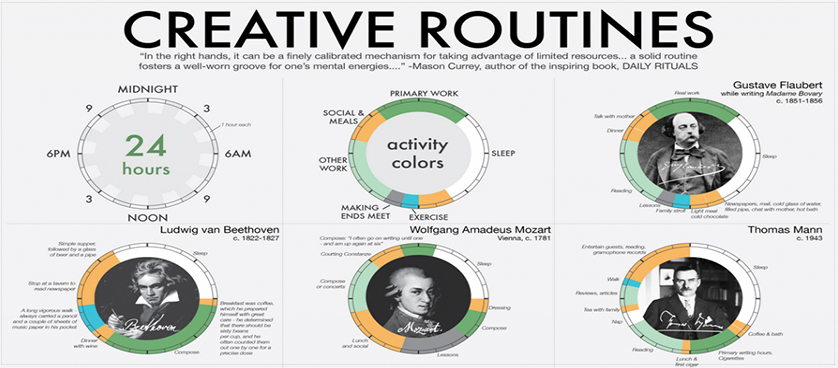Daily routines, productivity and personal performance
Time is the most important resource that companies and individuals have. Once lost, it cannot be recovered, nor can it be substituted by other means. Having to work under strict deadlines, with not enough time to complete all the tasks, or having difficulties in finding the right balance between personal and professional life are two common problems that individuals are struggling with today.
One way to solve these problems and to achieve performance at personal level is to develop productive routines. Routines are activities done on a daily basis, they have a great persistence in time, and as time passes they become automated habits. There are good and bad routines, all of them influencing our lives. Watching TV every morning for 2 hours for a period of 2 years and practicing sports for the same amount of time are two activities that have dramatically different impacts on the person’s health.
Thus, it is important to have ‘good’ routines, those ones that can help people feel better and reach their goals. The following infographic, created by Info We Trust based on Mason Currey’s book Daily Rituals: How artists work, provides us an insight into 16 of world’s most important personalities’ daily routines. The main daily activities are depicted using a color code on a clock-like graphic representing the 24 hours of the day.
A short analysis of the infographic reveals us that there are many differences between the lifestyles of these great personalities. Some work in the early morning, some work better late at night. The important lesson that can be thought is that working daily on the important tasks, reducing time-consuming distractions and finding a balance between work and social activities is the key in achieving personal performance.
The same conclusions are also emphasized in an article published in the Journal of Applied Psychology in July 2011 by professors Madjar N., Greenberg, E. and Chen Z. from University of Connecticut’s Department of Management.
Developing productive routines and using Key Performance Indicators to monitor the status of our activities is a key factor in achieving personal performance. On the ‘Personal context’ section of our website you can explore a selection of KPIs that can be used for measuring personal performance.
Image source:

Tags: Journal of Applied Psychology, KPI, Personal performance






